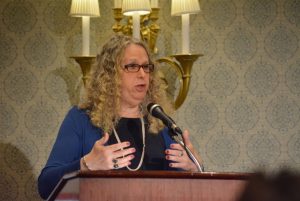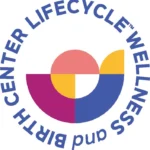June 16, 2015
Forum Highlights Critical Health Issues Facing Women – The Philadelphia Tribune
 A group of clinical experts and policy leaders gathered at a forum in Center City to address critical health issues facing women.
A group of clinical experts and policy leaders gathered at a forum in Center City to address critical health issues facing women.
More than 200 attendees turned out for the State of Women’s Health forum this month at the Union League.
The forum hosted by The Birth Center featured a keynote address by Pennsylvania Physician General Dr. Rachel L. Levine who honed in on two critical health issues — the rise of maternal mortality in Philadelphia and the opioid addiction crisis in Pennsylvania.
“The single biggest health crisis right now in Pennsylvania — as it is in the United States — is opioid addiction and the risk of overdose,” Levine stated.
She cited the recently released Pennsylvania coroner’s report which indicated opioid overdoses claims the lives of seven Pennsylvania residents a day. Levine said much of this can be attributed to the over prescribing of opioids by physicians who are trying to help people cope with pain. This often leads to opioid addiction, which can morph into heroin use.
Levine said steps are being taken to address the issue including developing opioid prescribing guidelines for physicians, establishing a prescription drug monitoring program that allows physicians and pharmacies to monitor prescription opioid use and getting naloxone, a medication that can reverse opioid overdoses into the hands of first responders such as police officers, fire and EMS workers.
Levine highlighted a report recently released by the Philadelphia Department of Public Health which addresses maternal mortality in the city from 2010-2012. The report noted that nationwide Black women are at least three times more likely to die from pregnancy related complications than white women, due to various factors.
“One of the sobering features in Philadelphia is that the maternal mortality rate was 27.4 deaths per 100,000 live births and the national average for 2006-2010 was 16,” said Levine.
Kathryn Boockvar, executive director of Lifecycle WomanCare, formerly known as The Birth Center, said the forum was organized to bring together thought leaders, practitioners, consumers and industry to explore critical health issues facing women, and identify effective approaches programs and policies for advancing care.
“The goal is really to get everybody in dialogue and strategizing how we take our education, experiences and our programs and channel that into collectively improving the overall health outcomes of women,” said Boockvar.
The forum featured a panel of leading voices in women’s health who discussed a myriad of topics ranging from health disparities, maternity care, behavioral health, midwifery, LGBTQ interests, aging and end of life issues and public policy.
Panelists included Dr. Valerie Arkoosh, vice chair, Montgomery county Board of Commissioners and obstetric anesthesiologist; Julie Cristol, director of clinical services, Lifecycle WomanCare; Lois K. Evans, professor emerita of nursing, Penn Medicine; Katherine K. Kinsey, nurse administrator, Philadelphia Nurse-Family Partnership, Mabel Morris Family Home Visit Program and Brenda Shelton-Dunston, executive director, Black Women’s Health Alliance.
During her presentation, Shelton-Dunston noted that the social determinants of health — which include factors such as socioeconomic status, exposure to crime and quality of education — are adversely impacting African-American women.
“When you look at the intersect between social dynamics and the social determinants of health — we talk about poverty. We talk about the environment. We talk about access to care. We do not live in isolation to our environment,” Shelton-Dunston said, noting these dynamics are impacting the rates of diabetes, heart disease and infant mortality among Black women.
Ayana Jones
Tribune Staff Writer
Photo credit: ABDUL SULAYMAN/TRIBUNE CHIEF PHOTOGRAPHER
ajones@phillytrib.com
(215) 893-5747

